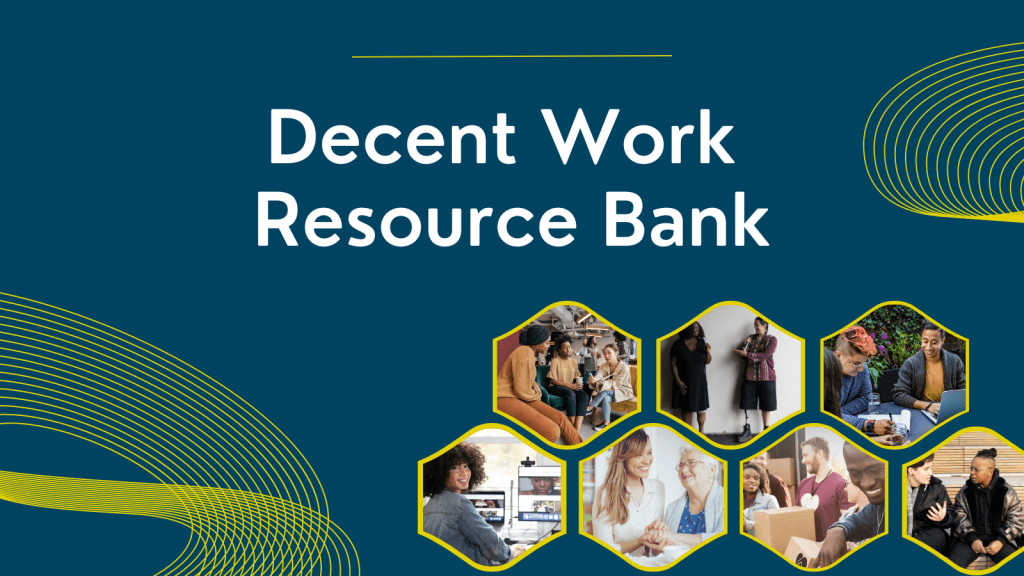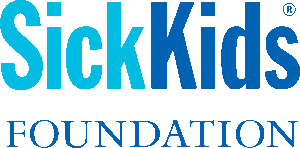
Blog
Reflections on the making of a decent work resource bank
When I started my position as a Communications Policy Researcher, Anti-Racism and Nonprofit Engagement at ONN in the summer of 2022, I had a limited understanding of the decent work movement in the sector, and its intersection with issues of racial justice and Indigenous sovereignty. As a student of International Political Economy, I spent years researching different socio-economic structures and the conditions of working people within them. More specifically, as my research focuses on the exploitative conditions that working-class people face under systems of expanding capitalism, I understood – in theoretical terms – the urgent need for decent working conditions.
As a person deeply interested in contributing to projects that challenge oppressive or exploitative structures, I was delighted to find an opportunity to support efforts around decent work movement building at ONN.
I began by going through the considerable resources that exist on the subject. This journey of learning was illuminating, as several important connections and questions began to emerge for me as I delved into the literature. While it is fairly easy to discuss the importance of creating decent working conditions, it is far more difficult to specify what these conditions look like in reality.
Focusing on the nonprofit sector specifically to examine how the issue has been addressed so far and what lessons other sectors can draw from it has been helpful in grasping the different aspects of decent work. Another important insight that helped shape my learning is the relationship between decent work, racial justice, and Indigenous sovereignty. Far from being a project focused exclusively on working people and their conditions, decent work is a framework that can serve to challenge unjust structures of racism and settler colonialism.
Figuring out the resource bank format and its offerings
In my role at ONN, I sought to probe this link between decent work and other anti-oppression frameworks further. And, while I found substantial material on decent work in the nonprofit sector, literature that explicitly linked decent work in the sector to issues of racial justice and Indigenous sovereignty was difficult to find. With the Decent Work Resource Bank format, rather than presenting a review of the existing literature, we offer a curated collection of the literature that presents what is currently available and what is missing in the literature.

This resource bank is a living document that will continue to grow and change as the decent work movement does. Structuring it as an open resource bank enables nonprofits, advocates, and researchers to engage with the material in a myriad of ways. Nonprofits can look to the resource bank to find sector-specific information about decent work including precarity and volunteer work in the sector. We have additionally included databases that provide sector-wide national and provincial data that nonprofits can use to assess their work.
We were deliberate in drawing from a variety of resources, including academic articles, policy papers, popular publications, and podcasts. The range of resources included enables people to engage with the material in ways they like to learn. For nonprofits engaged in policy work, this resource provides a valuable starting point to conduct literature reviews.
Research areas of decent work to explore further
Similarly, advocates and researchers engaged in decent work can utilize the resource bank to assess the existing literature on the topic and identify important gaps that their work can help address. I came across a number of such gaps when I was conducting research for the resource bank.
For instance, there are very few studies that explore the intersection of decent work and racial justice in the Canadian context. It would be extremely valuable to have data on how decent work can support movements for racial justice in Canada. Similarly, there are few studies exploring the complex relationship between Indigenous sovereignty and notions of decent work in the context of settler colonialism in Canada. Given the push for decolonial and Indigenous-centered scholarship in Canada, this would be a valuable addition to the public discourse. Decent work’s relationship to those who sit at the intersection of a myriad of identities, including racialized, gendered, differently abled, and members of the 2SLGBTQ+ community is an important area of research that has received limited attention.
The resource bank can thus aid individuals, organizations, and institutions gain a sense of the existing literature, identify important gaps, and undertake research that can advance our collective understanding. In recommending this format, I sought to welcome everyone within and outside of the sector to draw from, engage with, and contribute to it.
Understandings of decent work can evolve
My understanding of decent work has evolved immensely in the time since I began working on this project. Coming into the project, my understanding of decent work was largely abstract. I knew that working conditions under capitalist relations of production were exploitative and extractive and served to exacerbate systems of oppression. I knew that I wanted to contribute to efforts to challenge these systems but did not have a solid grasp on what these efforts look like in concrete terms. Working on this project enabled me to refine and articulate how decent work advances the interests of working people.
In addition to improving my understanding of decent work itself, this project also provided me with a valuable framework to conceptualize what efforts to bring about systemic change look like, and what they require. Overall, this project provided clarity, and knowledge, and enabled me to reflect not only on the practical implications of decent work movement building but also challenged me to examine my own relationship to work. I hope it offers similar opportunities for learning, examination, and reflection to others.
This blog post was contributed by Fikir Haile, who worked with our team as a summer student in 2022. She is a PhD candidate in the department of Political Studies at Queen’s University, where she specializes in International Relations and Political Theory. Her research focuses on the areas of International Political economy, African Politics, and the politics of urbanization. Fikir has held numerous research fellowships and research assistantships centered around issues of race and equity within and outside of academic institutions. She has worked as an anti-racism advisor and a research assistant on projects focused on anti-racism in early childhood education and post-secondary education in Canada.



